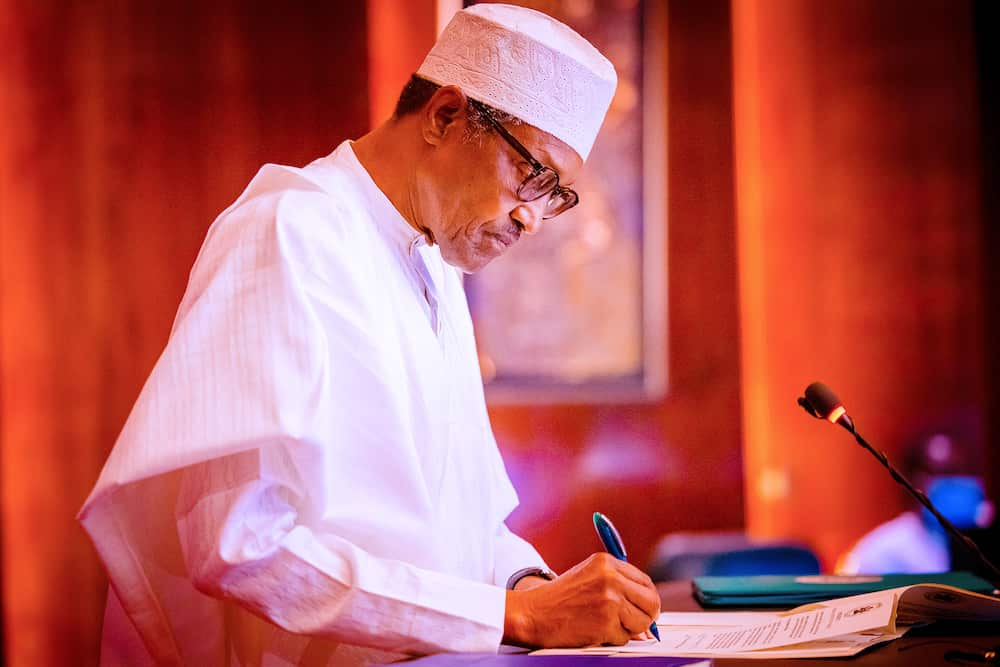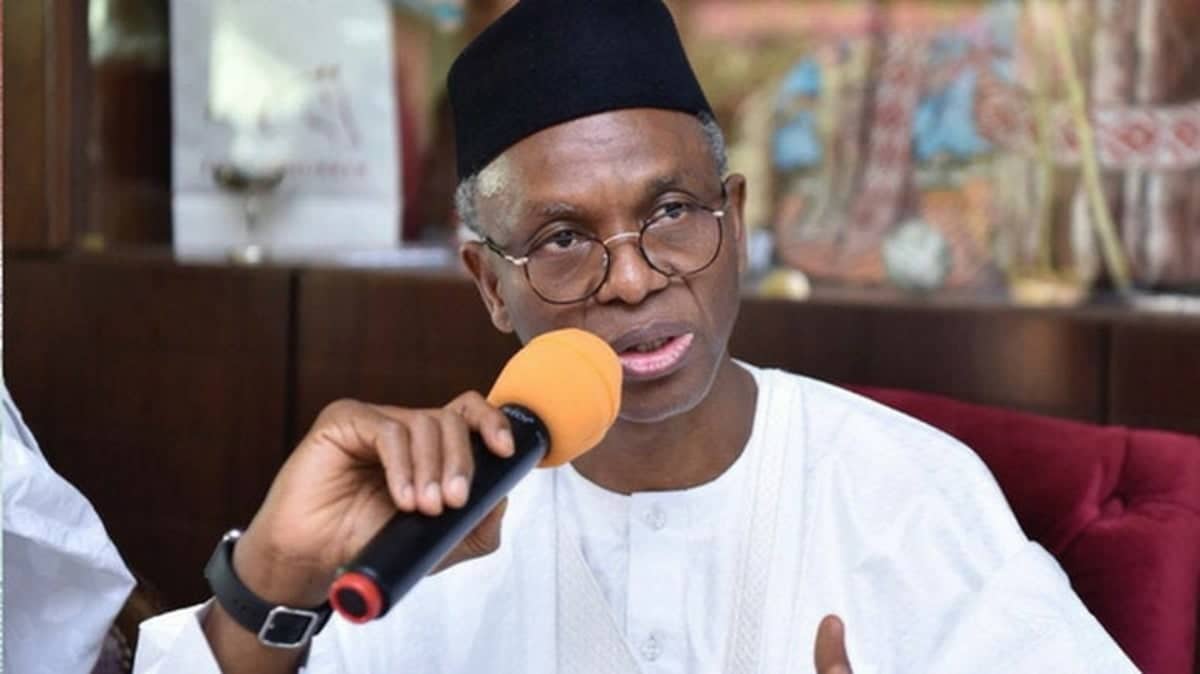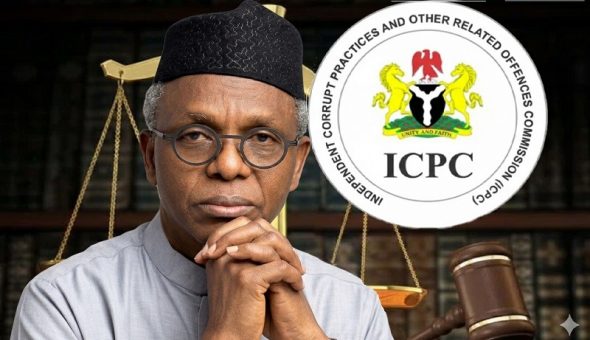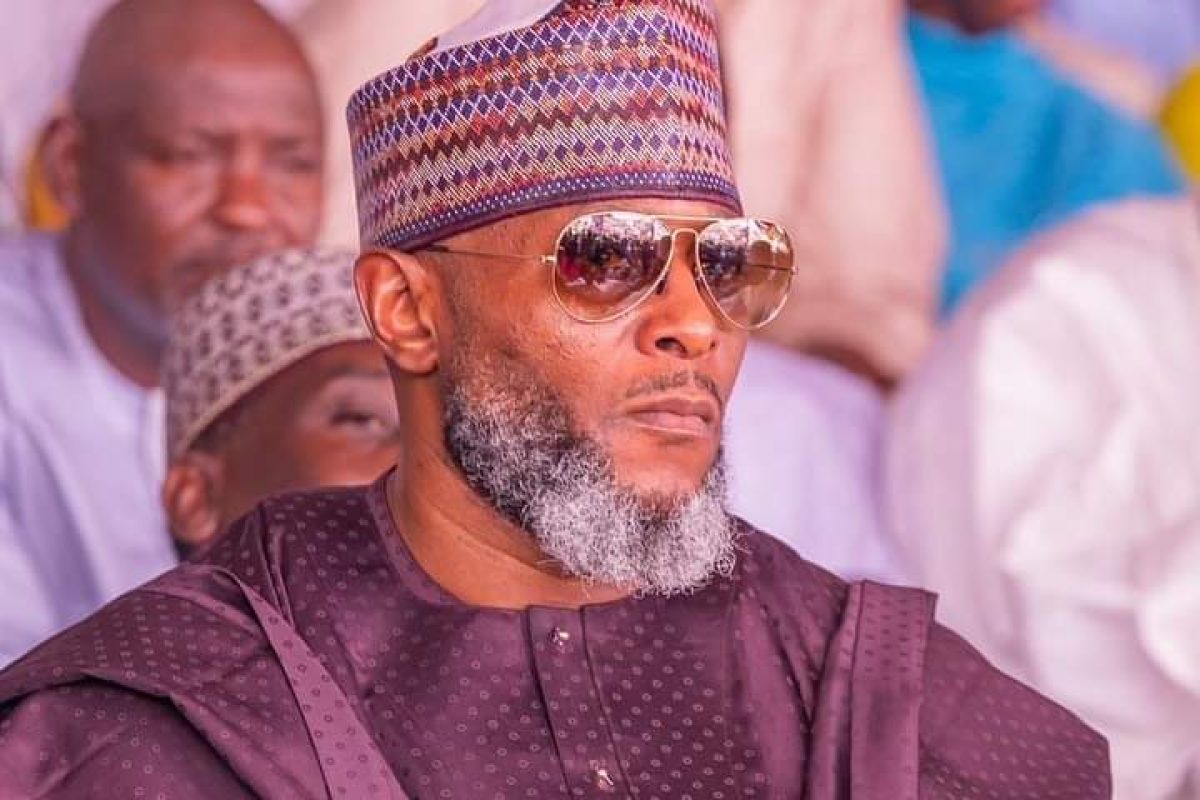SCORECARD: How was Buhari’s eight-year fiscal, monetary performance
The eight years of the Muhammadu Buhari administration were characterised by ups and downs as far as fiscal and monetary performance is concerned, even though the negatives seem to outweigh the positives.
Apart from the oil price crashes in 2016 and 2022, which plunged the crude-dependent economy into a recession in both years, there were other factors that pressured Nigeria’s fiscal sustainability and also made monetary policy decisions particularly difficult.
From record inflation and high exchange rates to steep subsidy spending and oil theft, the country’s fiscal framework has grown much more fragile, and the need by the government to source debt to fund its spending plan piles on the agony.
Since the administration began in 2015, the Nigerian government has missed its revenue targets without ceasing, with only the official figures for 2022 still outstanding. Debt servicing devoured almost all the revenue last year, inflation is currently almost at an 18-year peak and fuel subsidy, 2.3 per cent of GDP, has continually eroded revenue.
Also, a record string of rate hikes is failing to suppress inflationary pressures and is putting more strain on borrowers, while a dollar crunch dating back to 2020 is making things difficult for importers.
The list is seemingly endless but a commendable impact was made through policies like Tax & Fiscal Incentives for Start-ups as well as the Road Infrastructure Tax Credit Scheme.
Fiscal Performance & Reforms
Debt Servicing
According to the World Bank’s Macro Poverty Outlook for Nigeria: April 2023, the country spent 96.3 per cent of its revenue for 2022 on debt service, the culmination of a fiscal crisis that has built up for years.
That compares to 83.2 per cent one year prior, taking public debt stock to 38 per cent of GDP, just shy of the 40 per cent threshold set by the government.
“Nigeria is in a more fragile position than before the late 2021 global oil price boom,” said the World Bank in its report. “In 2022, the cost of the petrol subsidy increased from 0.7 per cent to 2.3 per cent of GDP. Low non-oil revenues and high-interest payments compounded fiscal pressures.”
The World Bank expects Nigeria’s fiscal deficit to surpass five per cent of GDP until 2025 in the absence of a substantial increase in crude oil earnings and tax reforms.
Nigeria’s debt is on track to surge by half after the National Assembly endorsed President Buhari’s move to convert a N23.8 trillion overdraft into bonds repayable over 40 years. That is projected to shoot the country’s debt to at least N69 trillion.
The temporary financing from the Central Bank of Nigeria, called Ways and Means Advances, could be availed by the bank to the government subject to a maximum of 5 per cent of the previous year’s revenue, with the funding expected to be repaid within the same year.
The Central Bank of Nigeria (CBN) overdraft had soared by 2,900 per cent from N790 billion to N23.7 trillion within the first seven years of the outgoing administration.
Subsidy Spending
Nigeria committed $5.5 billion to petrol subsidies between 2015 and 2020, according to the Breakfast Meeting report of The Economist, while $3.8 billion was spent on the same purpose in 2021. Data from NNPC Limited showed fuel subsidies cost the country $9.7 billion in 2022, taking the total for the last seven years to $19 billion.
Much as economists and analysts have called for subsidy removal over the years to ease the strain on revenue, the subject remains a sore point among past governments, and the fear that abolishing it could spark protests caused the Buhari government to abandon its initial plan to remove it.

Experts have also said the action could further weaken peoples’ purchasing power, strengthen inflation, which is currently near an 18-year high, and worsen the cost of living for Nigerians. Fuel subsidy as a proportion of GDP rose to 2.3 per cent last year from 0.7 per cent a year earlier.
Revenue Performance
Going by the data from the Budget Office of the Federation, the government set out in 2015 to achieve N6.8 trillion in revenue but ended up earning N4.7 trillion, translating to a shortfall or an underperformance of 43.2 per cent.
Both the oil and the non-oil components of revenue missed the mark, so much that revenue shrank by 23.9 per cent year on year.
For 2016, revenue of N5.7 trillion was projected but only N3.7 trillion was achieved, reflecting a deficit of 35.7 per cent. An oil crash that year created fiscal difficulty for an economy that relies on crude oil earnings for more than half of its revenue, setting the Buhari administration up for the first of its two recessions. Again, both oil and non-oil revenues lagged behind targets. Compared to 2015, revenue slid by 22.4 per cent.
The government planned to generate N8.5 trillion for 2017 but achieved only N4.9 trillion or 58.1 per cent. Year on year, revenue improved by 34.3 per cent but both oil and non-oil components of revenue fell short of projections.
For 2018, the government set itself a revenue target of N10.5 trillion but was able to achieve only N7.1 trillion or 68 per cent of that. Both oil and non-oil revenues fell below targets. However, revenue was 43.7 per cent greater compared to the previous year.
The projection for 2019 was N11.8 trillion. Nevertheless, just N6.2 trillion or 52.6 per cent was achieved. Again, both oil and non-oil revenues missed the targets. Year on year, revenue dropped 12.9 per cent.
For 2020, N8.6 trillion was the target for revenue but N6.5 trillion or 76 per cent was achieved. While the government missed its projection for non-oil revenue, it exceeded its target for non-oil revenue. However, revenue contracted by 27.1 per cent year on year.
The projection for 2021 was N8.4 trillion even though N6.4 trillion or 75.6 per cent was achieved. Oil revenue fell below the target but non-oil revenue beat forecast during the year. Year on year, revenue diminished by 2.4 per cent.
The figures for the 2022 fiscal year are yet to be issued.
Tax Performance
The Buhari administration generated N10.1 trillion in Value Added Tax (VAT) from inception to the end of 2022, according to data from the National Bureau of Statistics. The boost in VAT earnings has been largely spurred by an upward review in the VAT rate from 5 to 7.5 per cent in 2020.
“VAT is one of the ways to increase revenue and we still have to increase VAT because, at 7.5 per cent, Nigeria has the lowest VAT rate in the world, not in Africa, in the world,” Finance Minister Zainab Ahmed said recently. There are indications the rate could jump to 10 per cent soon though analysts say that could hamper the economy.
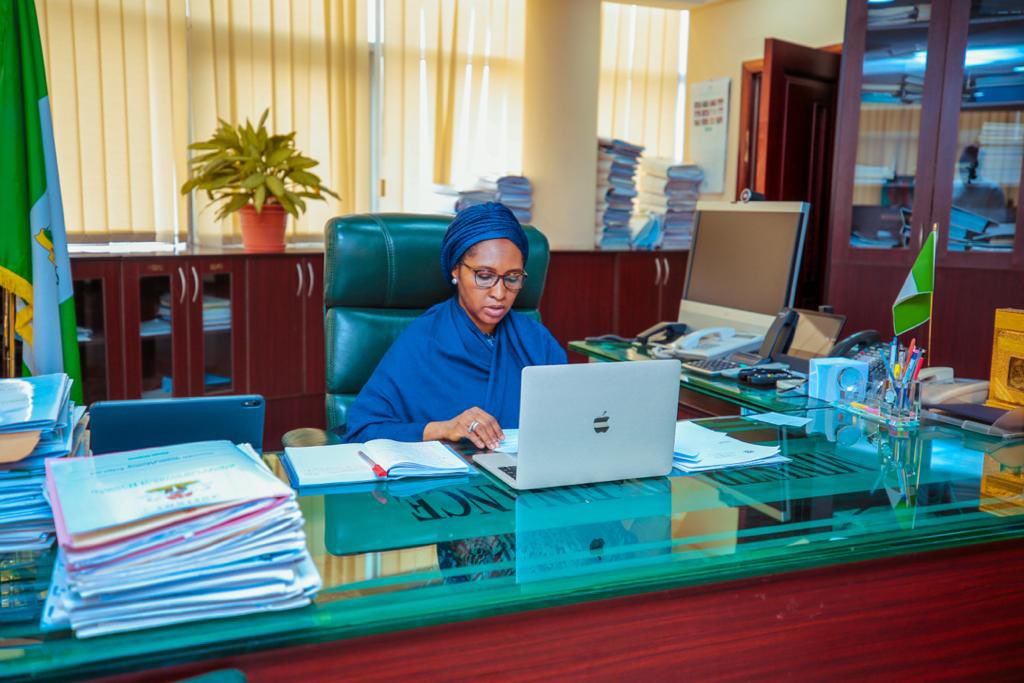
“The revenue performance from VAT has generally been excellent in recent years,” said Muda Yusuf, the CEO of the Centre for the Promotion of Private Enterprise.
“My view is that it is perhaps too early to review it again, especially in light of all the challenges that businesses are facing.”
The income generated by way of company income tax (CIT) between when President Buhari took office in 2015 and last December stood at N11.5 trillion, according to the statistics office. The government posted its biggest earnings ever from CIT in the four quarters of 2022, all summing up to N2.8 trillion for the year.
Tax and Fiscal Incentives for Start-ups
Under the Nigeria Start-up Act 2022, start-ups, as well as angel investors, private equity funds, accelerators/incubators and venture capitalists, are eligible for tax reliefs and incentives under the Pioneer Status Incentives Scheme.
They are also excluded from the payment of income tax under the Industrial Development (Income Tax Relief) for an initial period of 3 years and are not affected by the restrictions under the Companies Income Tax Act.
They are qualified to enjoy an investment tax credit equivalent to 30 per cent of their investment in the start-ups.
Road Infrastructure Tax Credit Scheme
The Buhari administration introduced the Road Infrastructure Development and Refurbishment Investment Tax Credit Scheme in 2019 with a view to enabling public-private intervention in the construction, refurbishment and maintenance of critical road infrastructure in Nigeria.
Nigeria, President Buhari said in September 2022, requires N348 trillion over the next decade to meet its infrastructure needs and, a functional road network is central to this aspiration.
Mondaq, the New York-based legal industry intelligence syndication service, estimates that given the N4.9 trillion (excluding statutory transfer component) planned for capital expenditure in the 2023 budget, it will take the Nigerian government almost 70 years to bridge the infrastructure gap.
The Road Infrastructure Tax Credit Scheme allows participants to use the total cost incurred in the process of building or refurbishing an eligible road as a tax credit against future company income tax liability until full cost recovery is achieved.
About 54 road projects across the country have enjoyed the scheme between 2019 and 2022 including Onitsha-Enugu Expressway, Bonny – Bodo Road and Apapa-Oworonshoki-Ojota Road. Some of the beneficiary firms are the Dangote Group and BUA Group.
Border Closure
The Nigerian government, in August 2019, partly shut its land borders and, two months after, totally embargoed trade via land borders. The move was aimed at curbing the smuggling of rice and other prohibited goods into Africa’s largest economy as well as the illegal exportation of locally subsidised petrol to West African neighbours.
Minister of Finance Zainab Ahmed said in October 2019 that the action was interventionist as “we have to protect our own industries.”
Between August 2019 and when President Buhari approved the reopening of Nigeria’s four major land borders in December 2020, headline inflation had spiralled to an almost three-year peak of 14.9 per cent.
Restriction on foreign exchange for food imports
In the same month during which it announced a partial closure of the country’s land borders, the Nigerian government ordered the Central Bank of Nigeria to stop providing foreign exchange for the importation of fertiliser and food items on its import bill.
That was in addition to the 41 items for which forex for their importation had already been banned in 2015. The government noted that those items could be produced locally and boosting their production would not only help conserve the foreign exchange reserve but also help diversify the oil-dependent economy.
One big impact of the policy shift was the launch in March 2022 of the Dangote Fertiliser Plant, which has an installed capacity of 3 million metric tons of urea per annum and is planned to export fertilisers to the US, Brazil and India.
Monetary Policy Performance Review
Interest Rate Hikes
Nigeria’s consumer inflation, which stood at 9 per cent when President Buhari took office in May 2015, has ever since stayed above the 6 to 9 per cent band targeted by the central bank.
Elevated inflationary pressures forced the CBN to raise the benchmark interest for the first in two years last May, when it increased it by 150 basis points, fearing price pressures could strain Nigeria’s frail economic recovery if left unaddressed.
That has been followed by five successive rate hikes as Nigeria undergoes its longest cycle of upward rate adjustment on record, putting the current monetary policy rate at 18.5 per cent.
With inflation now at 22.2 per cent, the highest level since September 2005, the CBN says the interest rate will continue to be raised until it closes the gap with inflation.
Revving up the benchmark interest rate by a cumulative 650 basis points between last May and March has caused borrowing rates to trend upward at commercial banks and bonds to be priced higher.
Exchange Rate
On the day President Buhari was inaugurated in May 2015, the US dollar exchanged for N199 at the spot market. The rate had climbed 132.7 per cent to N463 at market close as of 19 March 2023, according to data from the FMDQ Exchange.
But that was a conservative rate, given that the official rate is tightly controlled by the government and is less driven by market forces than the parallel market, which foreign exchange users patronise more than the latter.
A perennially steep decline in Nigeria’s dollar earnings since an oil crash in 2020 has led the CBN to ration dollar supply in order to defend its foreign exchange reserves.

That is compelling importers and others in need of foreign exchange to throng the black market where the dollar is available at a pretty higher rate.
The dollar exchanged for N759.73 as of 11:05 WAT on 19 May 2022, according to @naira_rates, which aggregates rates using Application Programming Interface. That leaves the spread between the official and the parallel market rates at 64.1 per cent.
The central bank has ignored suggestions from the International Monetary Fund and the World Bank to ditch its multiple exchange rates regime and unify rates around that of the parallel market.
According to a November 2022 report, the World Bank said Nigeria’s use of multiple exchange rates “acts as an implicit tax levied by the CBN on federation revenue,” which cost the government $144.1 billion between 2017 and Q1 2021.
Sourcing forex at high rates is causing import-dependent businesses to pass on the steep costs of bringing in raw materials to customers, further stoking inflation.
Naira Redesign
The recent botched attempt by the Buhari administration to replace high-denomination notes – 200, 500 and 1,000 naira – with newly designed ones pushed the survival of both individuals and businesses to the brink.
According to the CBN, the policy, which also planned to wean Africa’s largest economy of its heavy reliance on physical cash, would help control inflation by cutting back the total money in circulation.
Within the two months to January, the CBN was able to recall as much as 70.4 per cent of the N2.7 trillion cash outside banks’ vaults, according to the governor, Godwin Emefiele, in addition to the N500 billion banks already held. But that came at a cost.
Reducing the money supply at a rate that huge was enough to strain livelihoods as the new notes were disproportionately lower than the withdrawn old notes in value and volume.
The blow to small businesses was equally monumental, given that the country’s cash-dependent informal sector accounts for about 65 per cent of the GDP according to IMF’s estimate.
“Retail transactions across sectors have become nerve-wracking and distressing as payment system challenges persist. Since the onset of the cash crisis, the Nigerian economy has lost an estimated N20 trillion,” the Lagos-based Centre for the Promotion of Private Enterprise said.
“Millions of citizens have slipped into penury and destitution as a result of the disruptions and tribulations perpetrated by the currency redesign policy,” it added.
Last Wednesday, the nation’s statistics bureau said Nigeria’s Gross Domestic Product (GDP) growth rate slowed to 2.31 per cent (year-on-year) in real terms in the first quarter of the year (Q1, 2023) compared to 3.52 per cent recorded in the preceding quarter, essentially due to the ripple effect of the CBN naira redesign policy.
Yet, the impact was not altogether negative. As the cash crunch came to a head in March, mobile banking transactions soared to their peak level since official records began, according to the data from the Nigerian Interbank Settlement Scheme.
Hitting 183.7 million, transactions that month were five times bigger than a year ago in a mark of wide adoption across the nation, a big blessing to the country’s financial inclusion drive.
Also Read: SCORECARD: Key metrics show Buhari failed as Nigeria’s President
The traffic rate on the platforms of organisations under the FinTech Association of Nigeria soared more than fourfold between the start of the cash crunch and the third week of February, says CEO Babatunde Obrimah.
